Cucumber Juice: Benefits, Nutrition, And More
This cooling drink can help you lose weight as well as protect your vision!
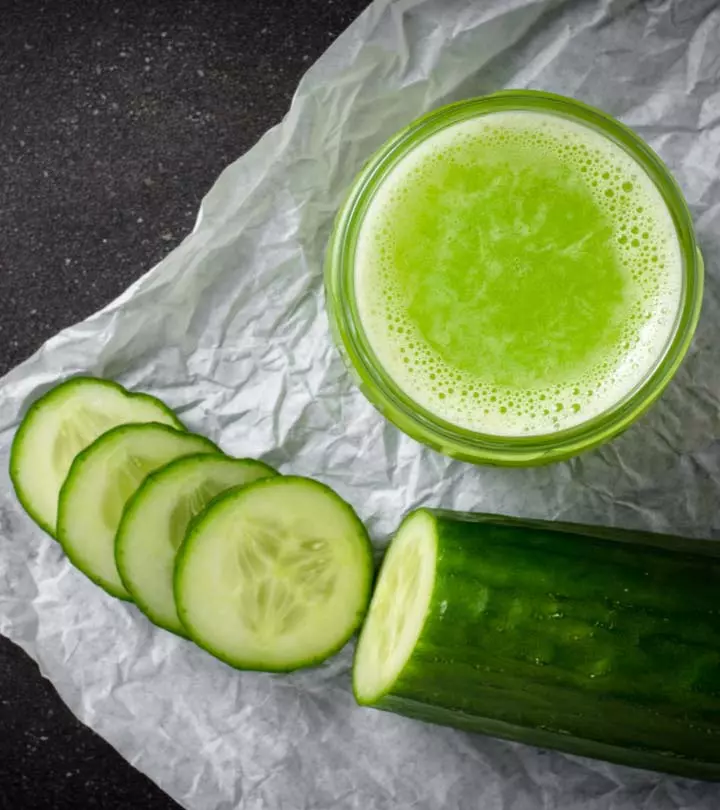
Image: Shutterstock
Cucumber is one of the most popular and refreshing foods in the world and is a frequently used ingredient in various beauty and cosmetic products. Commonly considered a vegetable, cucumber, is in fact a fruit. While cucumbers are used across a variety of dishes today, regularly drinking cucumber juice benefits and improves your overall health. Highly nutritious and rich in water content, cucumber juice increases hydration levels and is a perfect drink for hot and sweaty summers. In this article, we take a look at the different benefits of cucumber juice, its nutrition profile, and its potential side effects.
 Know Your Ingredient: Cucumber Juice
Know Your Ingredient: Cucumber JuiceWhat Is It?
The juice of cucumber that is extracted by pressing or squeezing the fruit.
What Are Its Benefits?
Aids weight loss, lowers blood sugar levels, slows down eye degeneration, and boosts immune system.
Who Can Use It?
Considered safe for consumption in general.
How Often?
Daily along with your breakfast or after morning exercise.
Caution
Those who are on blood thinning medication or experiencing digestive problems should avoid it. Some individuals may also be allergic to it.
In This Article
What Is Cucumber?

Cucumber (Cucumis Sativus.) is part of the Cucurbitaceae family which also includes fruits such as squash, melons, and pumpkins. Native to India, cucumber has been used as a source of refreshing food for thousands of years. The benefits of cucumbers are numerous, and its juice provides essential nutrients for our health. Being rich in various nutrients and medicinal properties, cucumber juice is an ideal drink to boost your immune system and improve your skin health (1). With its mildly refreshing taste, cucumber is a versatile fruit used in kitchens across the world. Today, cucumber is used in salads, dips, soups, sauces, and even as a refreshing drink on your spa day!
 Trivia
TriviaCucumbers come in several distinct varieties. Here are some of the popular cucumber variants:
1. Slicing Cucumbers
- You find these in most grocery stores.
- They are typically 6–9 inches long, with mild flavor, firm, juicy flesh, and thick skin.
- Ideal for salads and sandwiches.
2. Pickling Cucumbers
- Smaller and often bumpier than slicing cucumbers.
- They are perfect for making pickles due to their firm texture and ability to hold up well in brine.
3. English Cucumbers
- They are also called ‘seedless’ or ‘hothouse’ cucumbers.
- These are long and thin-skinned with tiny seeds.
- They have a milder, slightly sweeter taste.
In the next section, we take a deeper look at the nutritional content of cucumber.
Key Takeaways
- Cucumber juice is abundant in dietary fiber that may help boost digestion and lose weight.
- It contains cucurbitacin which may help lower blood sugar levels and improve insulin functioning.
- Having cucumber juice may help lower cholesterol levels as it is high in fiber.
- Consuming cucumber in excess may lead to indigestion.
Nutritional Information Of Cucumber
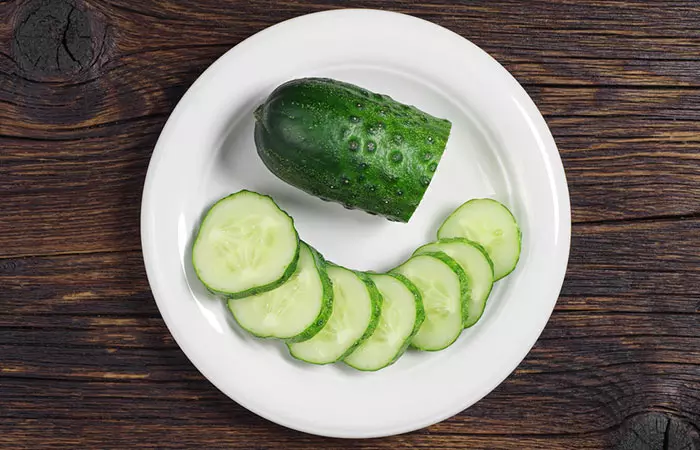
According to the USDA, 1 raw cucumber contains 45.2 calories and is rich in the following nutrients (2).
Nutrient | Amount |
Fiber | 1.5 g |
Calcium | 48.2 mg |
Phosphorus | 72.2 mg |
Potassium | 442 mg |
Magnesium | 39.1 mg |
Beta carotene | 135 ug |
Vitamin K | 49.4 ug |
Vitamin C | 8.43 mg |
Vitamin A | 316 IU |
Additionally, cucumber contains 96% water and is high in antioxidants such as lutein and zeaxanthin (3). For those looking to switch it up, cucumber juice with a hint of mint may be an excellent way to prevent dehydration during summers or after a workout.
Consuming cucumber juice has numerous health benefits. Let’s find out what they are.
Benefits Of Cucumber Juice

- May Aid In Weight Loss
Since cucumbers are naturally low in calories, drinking cucumber juice is also low in calories. Therefore, you can consume cucumber juice without thinking about adding on those extra caloriesunlike other calorific drinks, such as softdrinks and fruit juices. Studies suggest that eating low calorie and high water content fruits such as cucumbers are associated with a significant reduction in weight (4), (5).
- May Help Lower Blood Sugar
Cucumber may play an essential role in lowering blood sugar levels and controlling diabetes if eaten in moderation and as a part of a healthy balanced diet.
A 2015 review suggests that cucurbitacins, the plant compounds that give cucumbers a slightly bitter taste, may help improve insulin action (6). Other studies also suggest that cucumber may be effective in reducing oxidative stress and blood sugar levels, and may protect against diabetes-related complications (7), (8).
- May Protect Your Vision
Cucumber contains a high concentration of vitamin A, which has been associated with protecting your vision and slowing down visual degeneration (9). A study was conducted to examine the effect of cucumber on Sprague-Dawley rats with cataracts. The researchers observed a significant delay in cataract formation over a period of 4 weeks, suggesting that cucumbers may have anticataract properties (10).
- May Help Fight Against Cancer
The bitter-tasting cucurbitacin may possess anti-cancer properties. According to a 2015 review, cucurbitacin may inhibit the growth and development of several cancer cells as it reduces oxidative stress and boost your immune system (6). Other studies also indicate that cucumber may be important in reducing reproduction and multiplication of cancer cells, making cucumber juice a healthy addition to your diet (11).
- May Aid In Digestion
Consuming cucumber juice may help regularize your bowel movements. Dehydration and reduced intake of water have been associated with trouble in digestion and constipation (12). Cucumber juice, being high in water and fiber, may prevent constipation and improve bowel movement (5). Cucumber is also high in pectin, a soluble fiber associated with speeding up intestinal movements and improving digestive health (13), (14), (15).
- May Help Manage Cholesterol Levels
The high fiber content found in cucumber may help manage cholesterol levels and prevent cardiovascular diseases. A study was conducted to see the effect of oral consumption of cucumber on serum lipid profile and liver enzyme in young, healthy students. After 21 days, the researchers observed a significant decrease in total cholesterol levels (16).
While current research is limited to test-tube and animal studies, more studies are required to study how cucumber juice benefits human health.
May Improve Skin Health
The vitamins C and A in cucumber juice may help with wound healing, boost collagen production, and protect against UV-induced skin damage (2), (17), (18). The juice also contains silica that may promote tight and firm skin and reduce the appearance of fine lines and wrinkles (19). Further, the anti-inflammatory and cooling properties of the juice may help reduce swelling and calm irritated or sunburned skin (20).
Apply cucumber juice directly to your skin or mix it with other natural ingredients to prepare revitalizing and hydrating face masks. Its gentle, soothing nature makes it suitable for most skin types.
 Quick Tip
Quick TipIn the next section, we take a look at how to make cucumber juice at home.
How To Make Cucumber Juice Naturally

Mildly refreshing and crispy, cucumbers are a versatile fruit that can be eaten raw or incorporated into a variety of dishes. While commonly used to make stews, soups, sandwiches, dips, and salads, you can also make a delicious juice out of cucumbers. Here is a simple recipe for cucumber juice you can make at home.
Ingredients
- 3 medium-sized cucumbers
- 1 cup of water
- 1 teaspoon of lime juice
Instructions
- Remove the skin of the cucumber with a peeler or knife.
- Slice and cut the cucumbers into small pieces.
- Add the cucumber slices to a blender and blend for 2 minutes for an even consistency.
- Pour the juice through a sieve to allow the juice to filter through a jar.
- Use a spoon to press the cucumber and get the remaining juice out.
- Add some water and lime juice.
- Refrigerate the juice for a few hours before drinking it.
Anjali Koli, a food blogger, shared a recipe for cucumber juice the way she likes it, with just two ingredients: half a cucumber and a thin slice of lime. She points out, “I did not strain it as I like it thick. Squeeze a bit of lime. I avoid salt but add it if you like it (i).”
The benefits of cucumber juice are many and can be an excellent addition to your diet. However, is it suitable for everyone? Let us check out the possible side effects of cucumber juice in the next section.
Possible Side Effects Of Cucumber Juice

While cucumber is mostly considered safe for consumption, research has reported a few side effects.
- Consumption of cucumber may aggravate the symptoms of dyspepsia or indigestion in some people(21).
- Individuals on blood thinners such as warfarin should limit their intake of cucumber as it is high in vitamin K which is responsible for blood clotting (22).
- Avoid intake of cucumber juice if you are allergic to cucumber (23).
Infographic: 5 Reasons To Add Cucumber Juice To Your Diet
If you are looking for a hydrating and refreshing accompaniment to your light breakfast, then cucumber juice is the one for you. Its high water and fiber content may aid in weight loss and make you feel energized in the morning. Check out this infographic to know more about the effects of cucumber juice on your health and well-being.
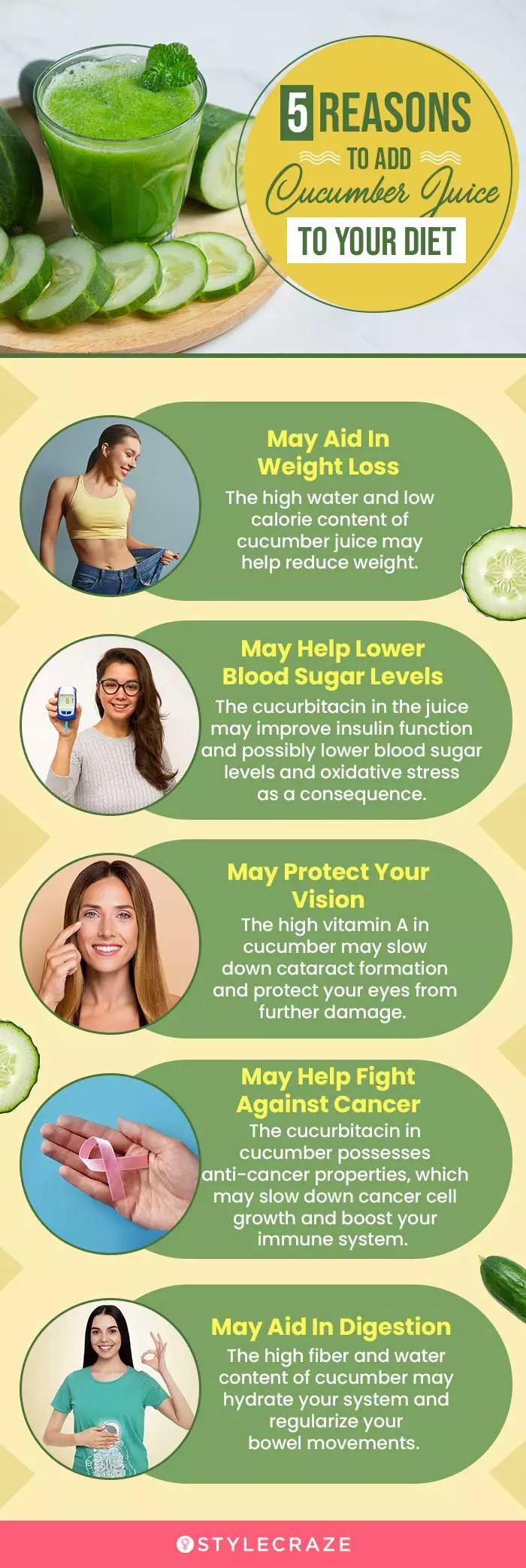
Illustration: StyleCraze Design Team
To Sum It Up
Cucumbers are a highly refreshing and versatile fruit that can be easily incorporated into your diet in the form of a rejuvenating cucumber juice. Low in calories and high in water, mineral and vitamin content, cucumber juice benefits your health by helping in weight loss, digestion, lowering blood sugar levels, and cancer prevention. While cucumber is mostly safe for consumption, people allergic to cucumber and using blood thinners should consult a doctor before consuming it. If you develop an adverse reaction, stop consuming it immediately and consult your doctor.
Frequently Asked Questions
Is cucumber water better than lemon water?
Both are good for your health. They are good detoxification drinks that help you flush out the toxins and keep you hydrated.
Do you juice cucumbers with skin on?
You can juice cucumbers with or without the skin on. Some people prefer juicing it with the skin while others prefer without it. The cucumber peels also contain beta carotene and fiber. Therefore, drinking it with the skin on will benefit your health too.
What happens when you drink cucumber water on an empty stomach?
Drinking cucumber water on an empty stomach may help improve digestion, detox the body, and help you stay energized throughout the day.
Is cucumber good for the kidney?
Yes, cucumber may help lower uric acid levels in the body. It also may help in the treatment of kidney problems and blood pressure issues (24).
How long does fresh cucumber juice last?
Fresh cucumber juice may last for a day. If you store it in a refrigerator, it may stay for 6 days at least.
Can we store cucumber juice in the fridge for using on the face?
Yes, you can store cucumber juice in the fridge for at least a week to use on the face. The antioxidant and anti-inflammatory properties of cucumber juice will help reduce the appearance of aging signs and soothe the skin (6), (25). You may use it at least twice a week.
Illustration: Ways Cucumber Juice Benefits Your Health
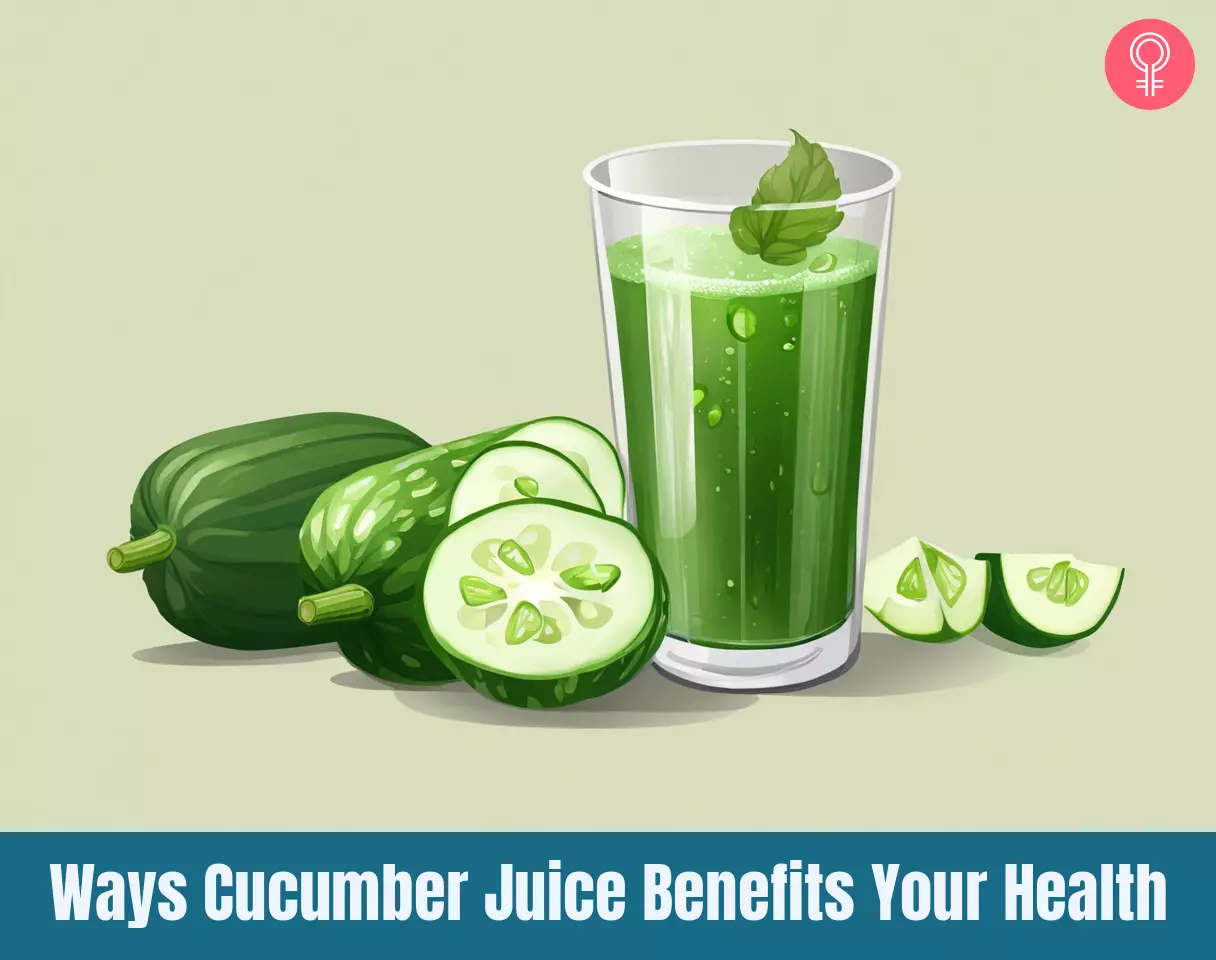
Image: Stable Diffusion/StyleCraze Design Team
Learn how to make a delicious and healthy cucumber juice for detox and weight loss. Get all the tips and tricks to make the perfect juice in this video. Watch it now!
Personal Experience: Source
StyleCraze's articles are interwoven with authentic personal narratives that provide depth and resonance to our content. Below are the sources of the personal accounts referenced in this article.
i. Beating the summer with cucumber juicehttps://annaparabrahma.blogspot.com/2009/04/beating-summer-with-cucumber-juice.html
References
Articles on StyleCraze are backed by verified information from peer-reviewed and academic research papers, reputed organizations, research institutions, and medical associations to ensure accuracy and relevance. Read our editorial policy to learn more.
- Phytochemical and therapeutic potential of cucumber
https://pubmed.ncbi.nlm.nih.gov/23098877/ - Cucumber with peel raw
https://fdc.nal.usda.gov/food-details/168409/nutrients - Contribution of Water from Food and Fluids to Total Water Intake: Analysis of a French and UK Population Surveys
https://www.ncbi.nlm.nih.gov/pmc/articles/PMC5084017/ - Link between Food Energy Density and Body Weight Changes in Obese Adults
https://www.ncbi.nlm.nih.gov/labs/pmc/articles/PMC4848697/ - Health Beneficial Effects of Cucumber
https://www.researchgate.net/publication/351580539_Health_Beneficial_Effects_of_Cucumber - Cucurbitacins – An insight into medicinal leads from nature
https://www.ncbi.nlm.nih.gov/labs/pmc/articles/PMC4441156/ - Anti-hyperglycemic effect of some edible plants
https://pubmed.ncbi.nlm.nih.gov/8569244/ - Protective mechanisms of Cucumis sativus in diabetes-related models of oxidative stress and carbonyl stress
https://www.ncbi.nlm.nih.gov/labs/pmc/articles/PMC4916550/ - Nutrients for the aging eye
https://www.ncbi.nlm.nih.gov/labs/pmc/articles/PMC3693724/ - The effect of Cucumis sativus L. and Cucumbita pepo L. (Cucurbitaceae) aqueous preparations on galactose- induced cataract in Sprague-Dawley rats
https://www.researchgate.net/publication/230613201_The_effect_of_Cucumis_sativus_L_and_Cucumbita_pepo_L_Cucurbitaceae_aqueous_preparations_on_galactose-_induced_cataract_in_Sprague-Dawley_rats
- Cucurbitacins – A Promising Target for Cancer Therapy
https://www.ncbi.nlm.nih.gov/labs/pmc/articles/PMC3612419/ - Mild dehydration: a risk factor of constipation?
https://pubmed.ncbi.nlm.nih.gov/14681719/ - Role of pectin from Cucumber (Cucumis sativus) in modulation of protein kinase C activity and regulation of glycogen metabolism in rats
https://www.researchgate.net/publication/6187334_Role_of_pectin_from_Cucumber_Cucumis_sativus_in_modulation_of_protein_kinase_C_activity_and_regulation_of_glycogen_metabolism_in_rats - Digestion of pectin in the human gut and its effect on calcium-absorption and large bowel function
https://www.researchgate.net/publication/23095701_Digestion_of_pectin_in_the_human_gut_and_its_effect_on_calcium-absorption_and_large_bowel_function - [Clinical benefits after soluble dietary fiber supplementation: a randomized clinical trial in adults with slow-transit constipation]
https://pubmed.ncbi.nlm.nih.gov/25623312/ - EFFECT OF CUCUMBER CONSUMPTION ON SERUM LIPID PROFILE AND LIVER ASPARTATE TRANSAMINASE AND ALANINE TRANSAMINASE IN APPARENTLY HEALTHY UNDERGRADUATE STUDENTS
https://www.researchgate.net/publication/319523951_EFFECT_OF_CUCUMBER_CONSUMPTION_ON_SERUM_LIPID_PROFILE_AND_LIVER_ASPARTATE_TRANSAMINASE_AND_ALANINE_TRANSAMINASE_IN_APPARENTLY_HEALTHY_UNDERGRADUATE_STUDENTS - The Roles of Vitamin C in Skin Health
https://www.researchgate.net/publication/319347502_The_Roles_of_Vitamin_C_in_Skin_Health - Vitamin A in Skin and Hair: An Update
https://www.ncbi.nlm.nih.gov/pmc/articles/PMC9324272/ - Silicon bioavailability in exocarp of Cucumis sativus Linn.
https://www.ncbi.nlm.nih.gov/pmc/articles/PMC5678890/ - Phytochemical and therapeutic potential of cucumber
https://pubmed.ncbi.nlm.nih.gov/23098877/ - The Role of Diet in the Management of Non-Ulcer Dyspepsia
https://www.ncbi.nlm.nih.gov/labs/pmc/articles/PMC4293796/ - Warfarin and its interactions with foods herbs and other dietary supplements
https://www.researchgate.net/publication/7169165_Warfarin_and_its_interactions_with_foods_herbs_and_other_dietary_supplements - Occupational allergy from cucumber
https://www.researchgate.net/publication/347128165_Occupational_allergy_from_cucumber - Physiological process of fat loss
https://bnrc.springeropen.com/articles/10.1186/s42269-019-0238-z - Effects of Chemical and Natural Additives on Cucumber Juice’s Quality Shelf Life and Safety
https://www.ncbi.nlm.nih.gov/pmc/articles/PMC7281498/ - Cucumis sativus fruit-potential antioxidant, anti-hyaluronidase, and anti-elastase agent
https://pubmed.ncbi.nlm.nih.gov/21153830/
Read full bio of Rowinda Dimech
Read full bio of Varsha Patnaik
Read full bio of Ravi Teja Tadimalla
Read full bio of Payal Karnik







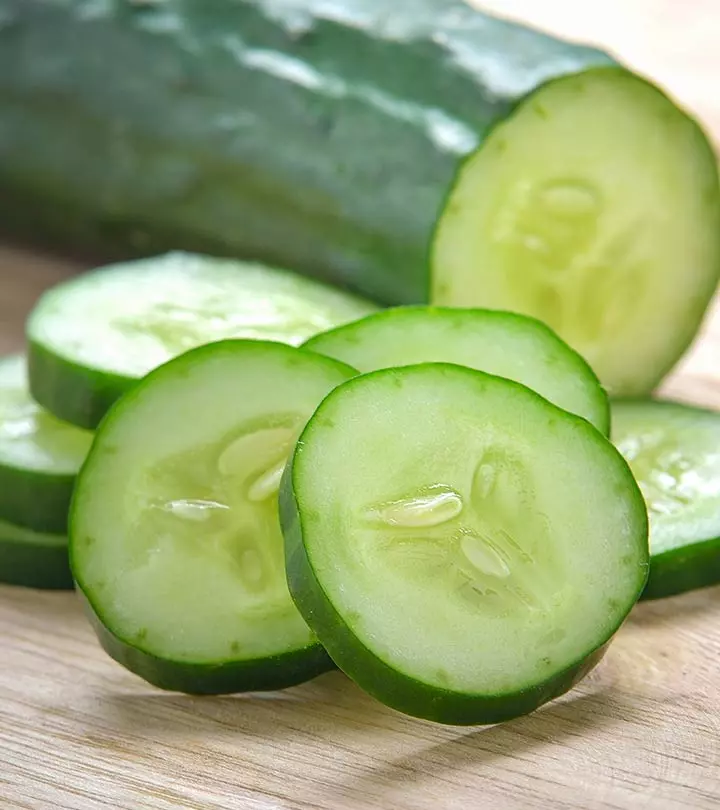
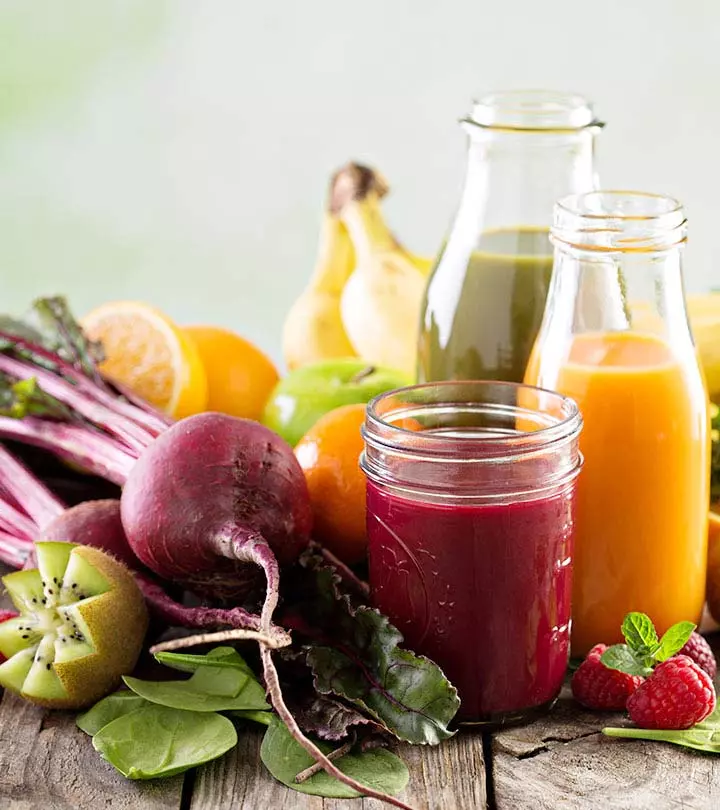
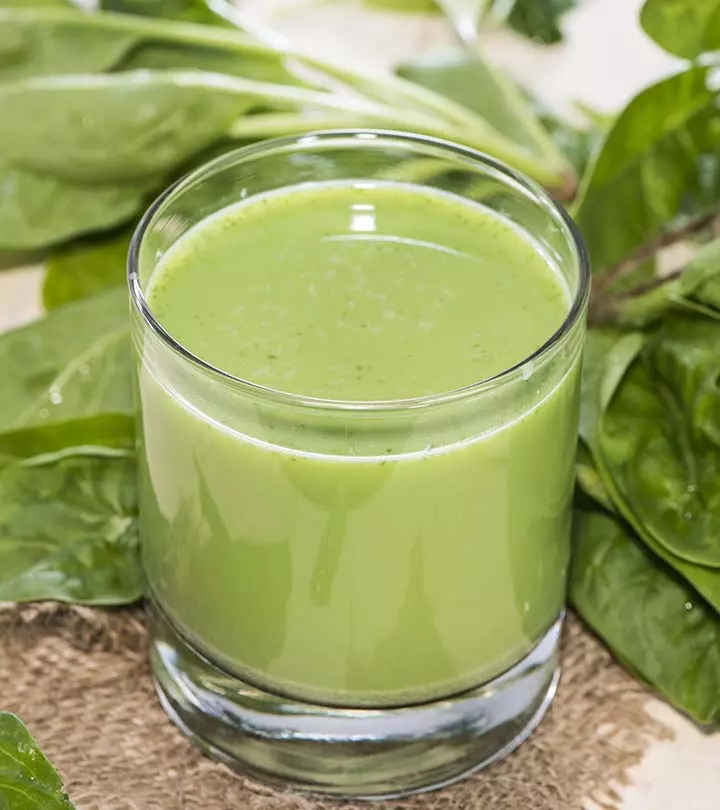
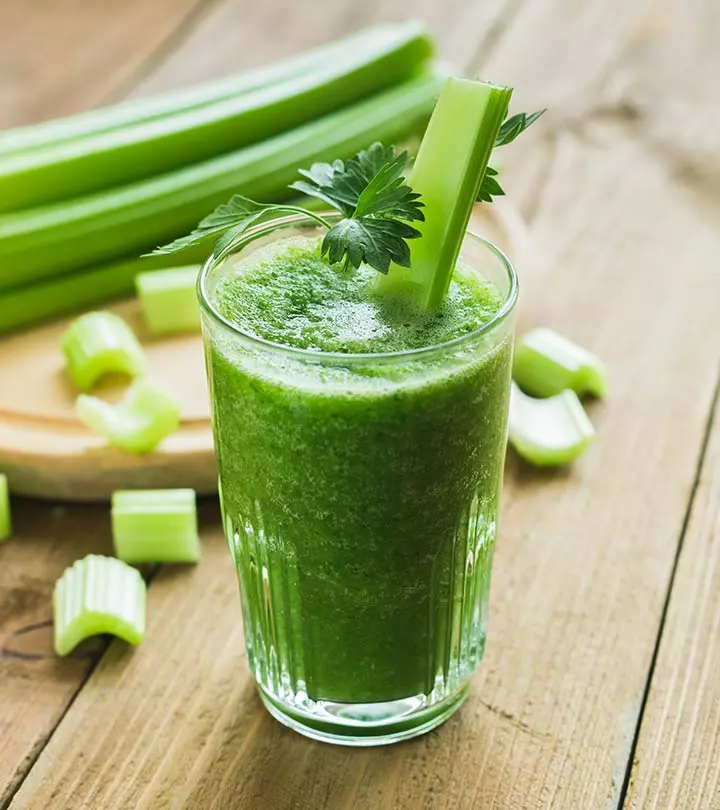

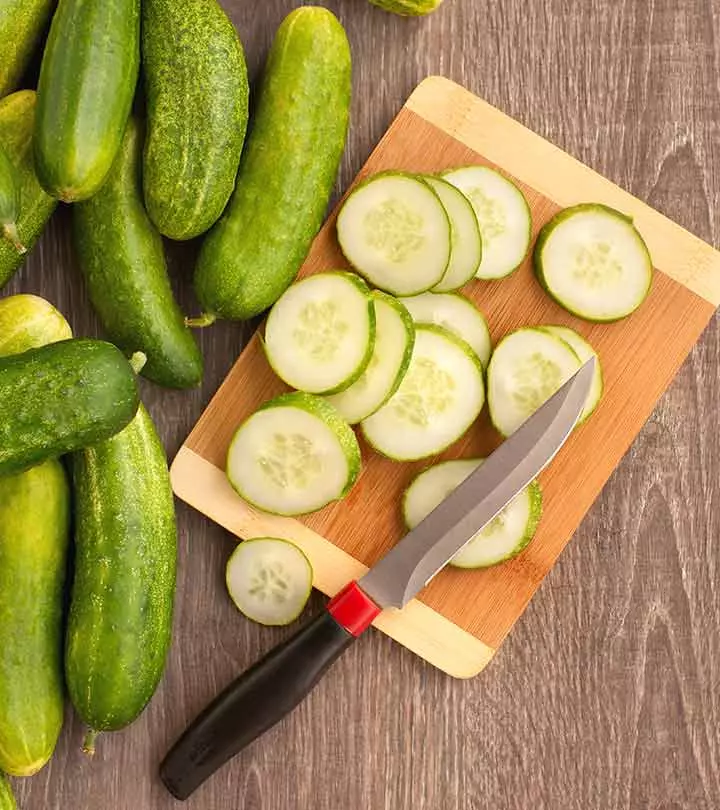

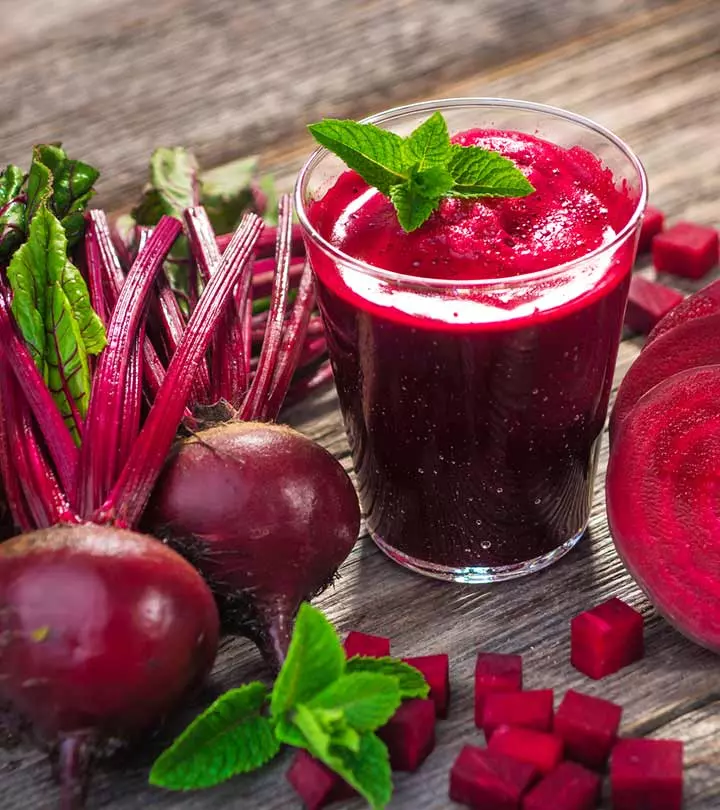
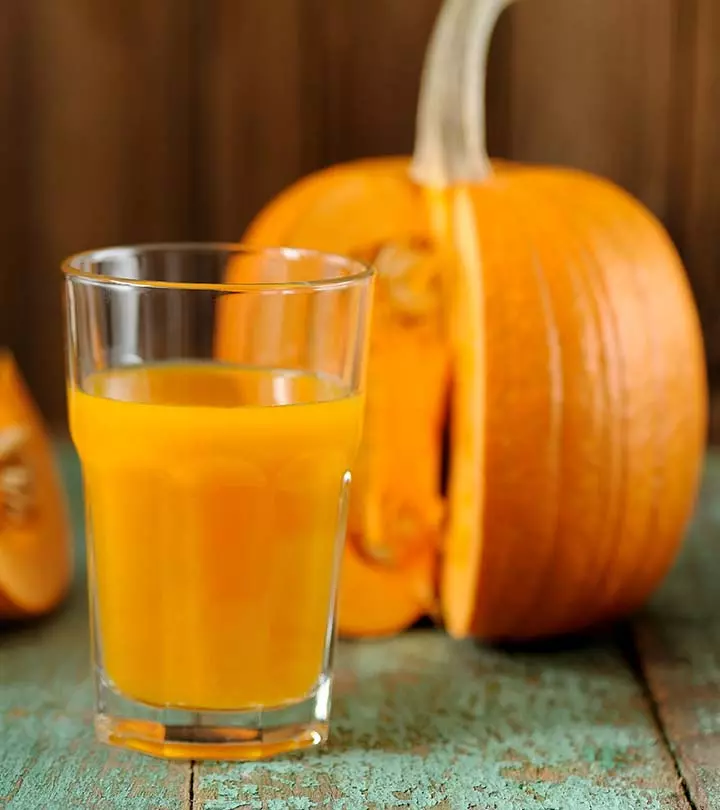
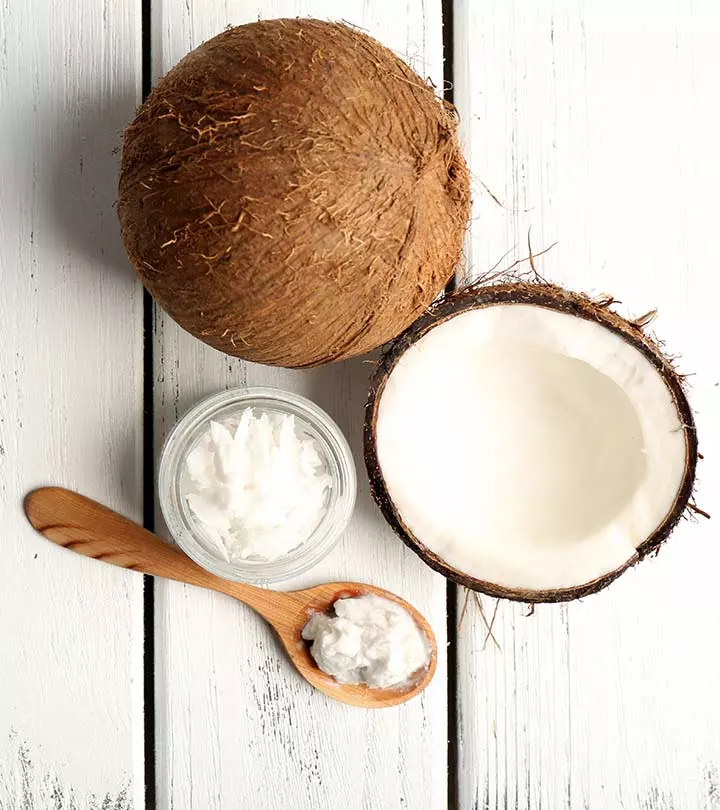
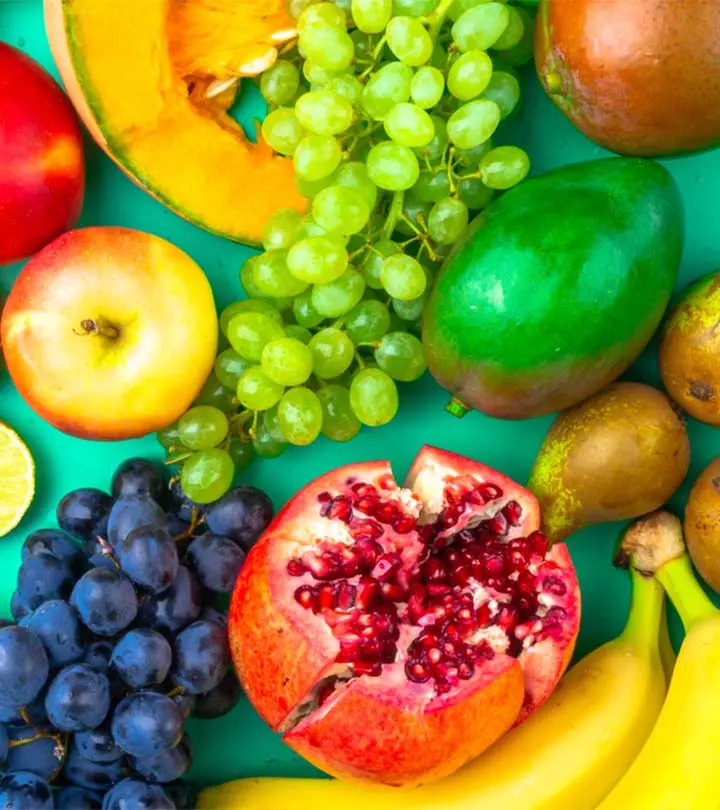
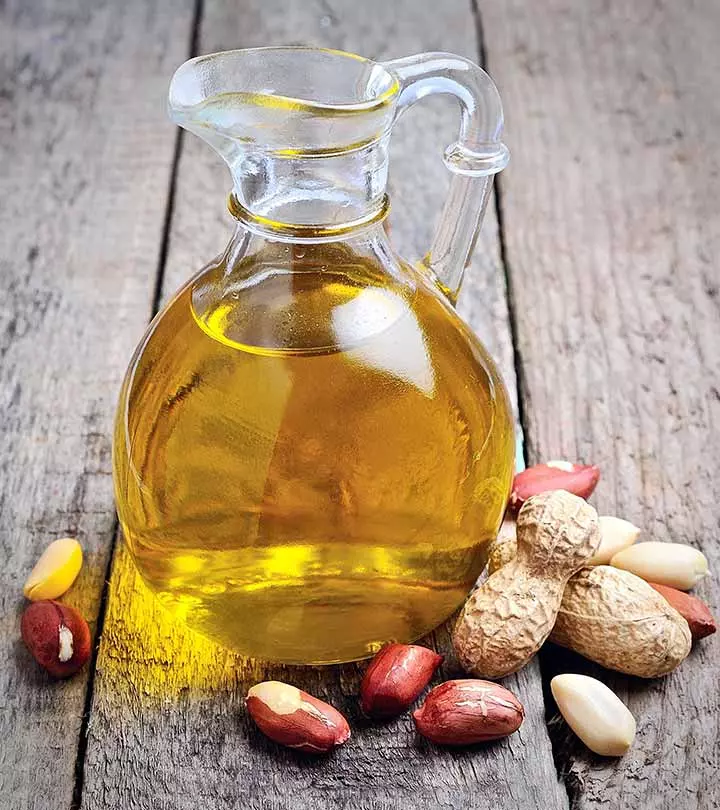
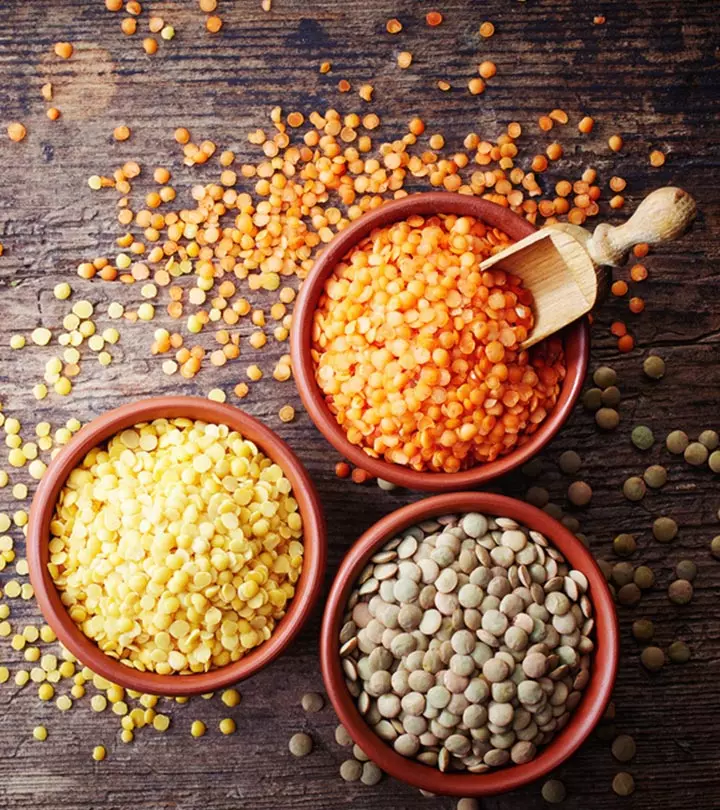
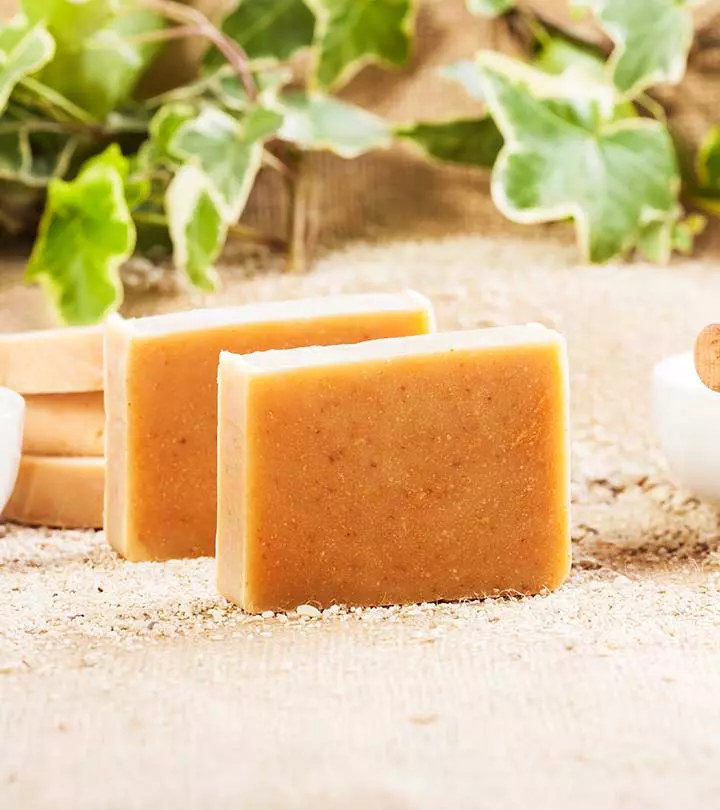

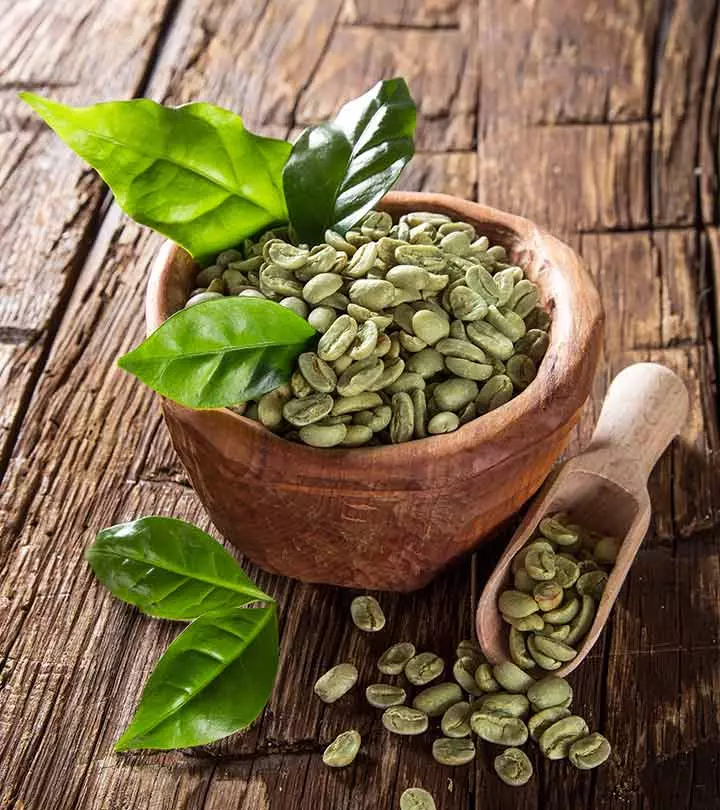
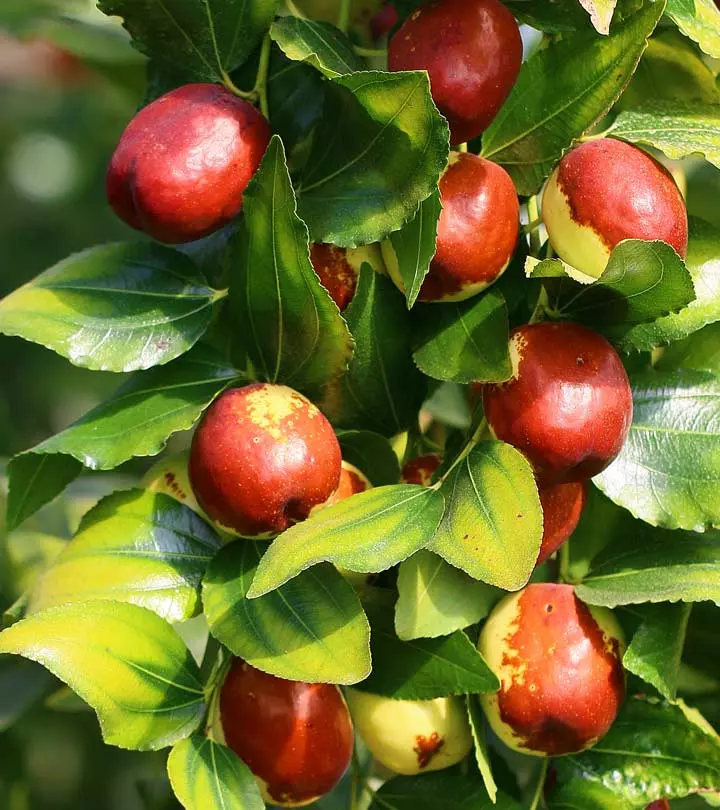
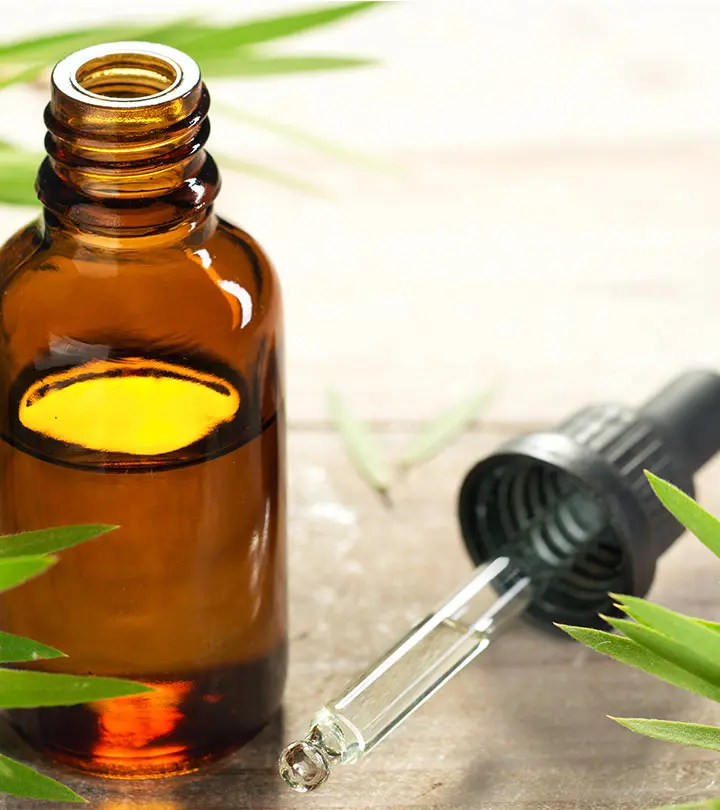
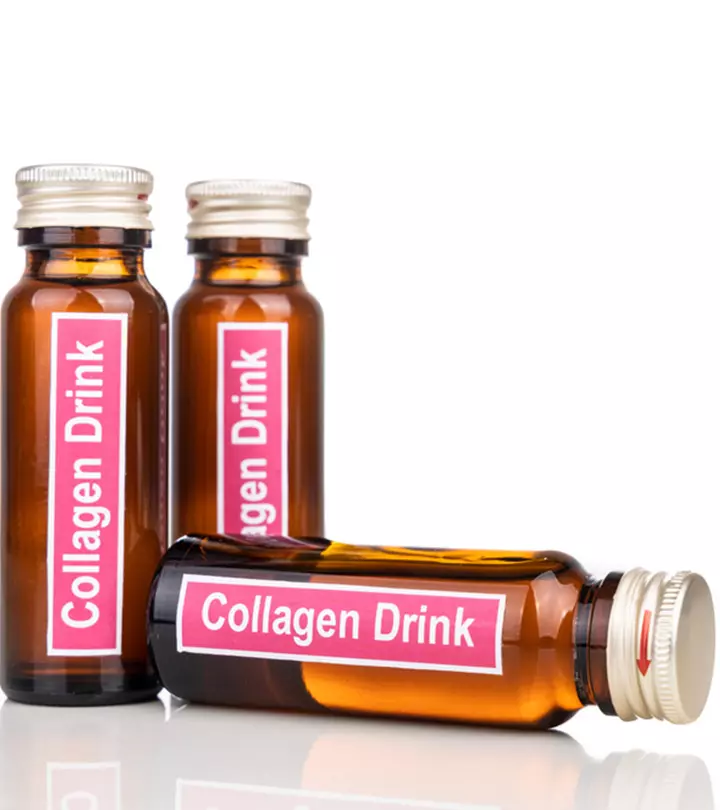
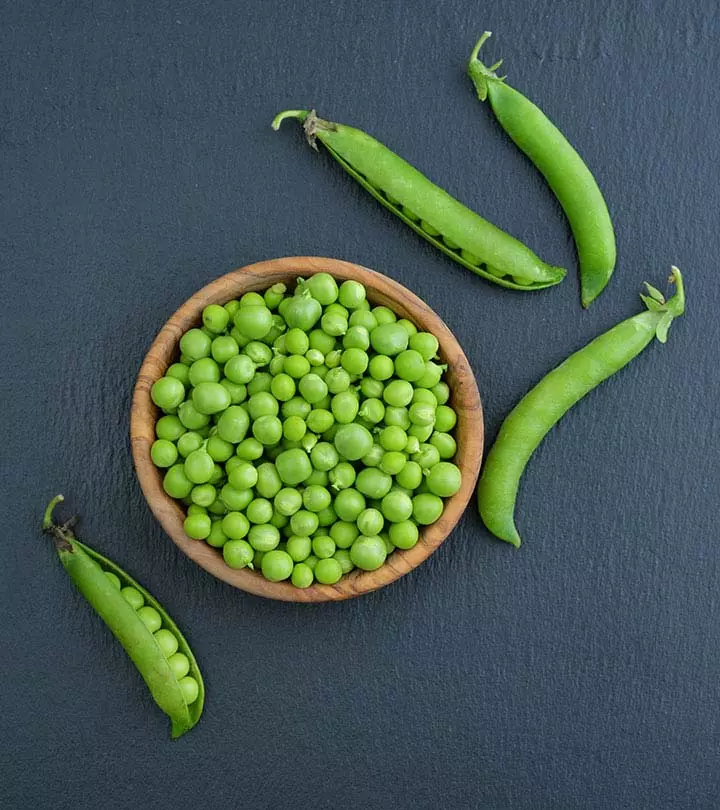
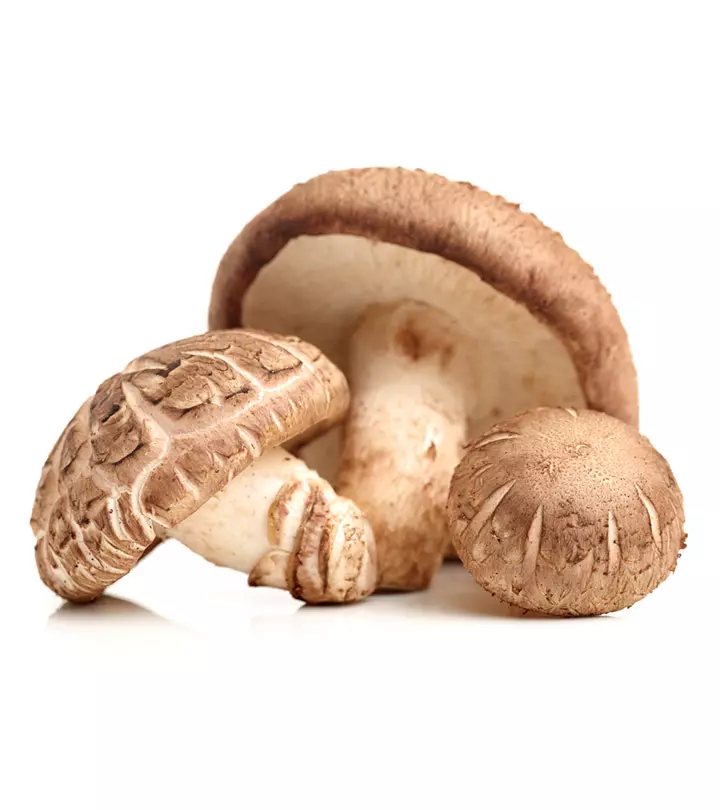
Community Experiences
Join the conversation and become a part of our empowering community! Share your stories, experiences, and insights to connect with other beauty, lifestyle, and health enthusiasts.